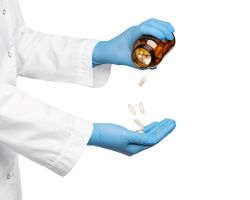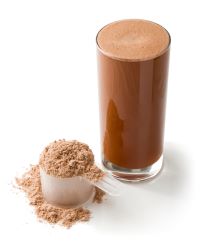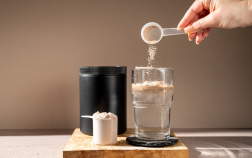
Andrzej Benkowski
Technical Manager, Probiotics & Dietary Supplements
As the Technical Manager at Eurofins Center of Excellence for Probiotics, Andrzej Benkowski brings over 18 years of expertise in biotics quality management, testing, and technology. With a strong technical background in food microbiology, Andrzej specializes in contract R&D, method development, and pioneering technologies for probiotic evaluation.
Since 2019, Andrzej has chaired the International Probiotic Association (IPA) Technical Committee and has been a member of the IPA Board of Directors since early 2024. He also contributes to the IPA Postbiotics Committee and has served as the IPA expert liaison with the International Organization for Standardization (ISO) TC34/SC9 Working Group 11 since 2022, co-convening their Enumeration Subgroup.
Andrzej is dedicated to advancing the biotics industry by setting rigorous standards and driving innovation with a focus on quality.
Outside of his professional and scientific achievements, Andrzej is a member of the Eurofins Madison Site Employee Engagement Team and manages the Community Supported Agriculture (CSA) Program for the site. A founding member of the funk band Steez, he also plays saxophone, synthesizers, and vocals. Andrzej enjoys the outdoors, spending time with his family, and pretending to be a coffee aficionado. Additionally, he has a passion for collecting sneakers and fitted hats.
Below are resources from Andrzej:
Explore a real-world OOS case study where collaborative investigation revealed formulation challenges as the root cause. Learn how targeted troubleshooting helped a client improve product consistency and manufacturing protocols.
In this webinar, our experts will discuss the latest international regulations, the impact of recycled materials, and how proactive testing strategies can keep your packaging safe and compliant. Originally Recorded on September 17, 2025
Get key insights from the MAHA Commission’s second report, released September 9, outlining strategic steps for implementation and updates to its original findings.
Discover why analytical testing is essential for dietary supplement and confectionery brands reformulating with natural colors—ensuring compliance, quality, and consumer trust.
Discover how SDS-PAGE, a powerful protein analysis method, supports ingredient quality, transparency, and innovation in the food industry—from meat and dairy to plant-based products.
Discover how a leading plant-based food company partnered with Eurofins DQCI to implement a precise calibration strategy, ensuring consistent and accurate protein testing across multiple production sites.
With growing scrutiny from lawmakers and public health advocates, the once-standard GRAS (Generally Recognized as Safe) process may be on the verge of a major overhaul. In this blog, we break down what GRAS really means, why the self-affirmed process has sparked concern, and how the proposed legislation could redefine the future of ingredient approval in the U.S. food system.
In May, the Trump Administration released the Make Our Children Healthy Again report—commonly referred to as the MAHA Report. As a new conversation unfolds, let Eurofins help you dive into its implications for the food industry through a series of weekly posts. While the report spans a broad range of topics, our lens will remain focused on the food, beverage, and consumer goods sectors—where we continue to support companies navigating change and driving innovation. Keep reading to find out more on MAHA Report.
Accurate determination of creatine and its degradation product, creatinine, in raw materials and finished products is essential for quality control and regulatory compliance. This webinar will provide an overview of best practices in HPLC creatine and creatinine testing in diverse range of products, including protein powders, pre-workout formulations, beverages, and gummies. Originally Recorded on August 8, 2025
Issues during the Clean-In-Place (CIP) process, such as insufficient rinsing, can lead to the contamination of products, resulting in quality and/or safety concerns. This on-demand webinar covers various strategies for the detection of CIP chemicals in foods, beverages, and related products. Originally Recorded on June 25, 2025












